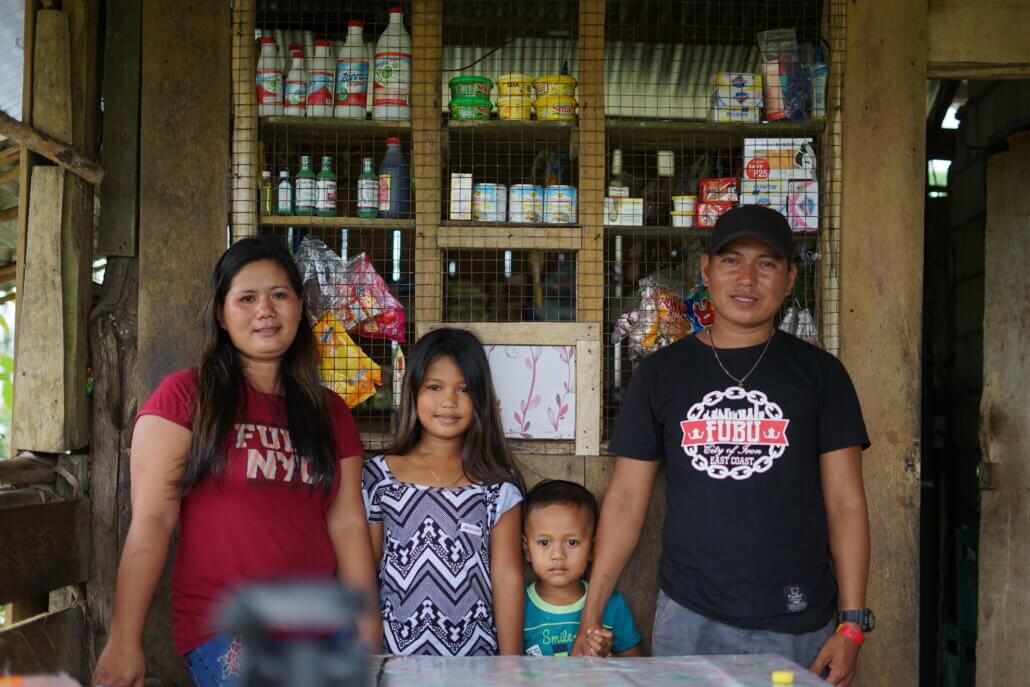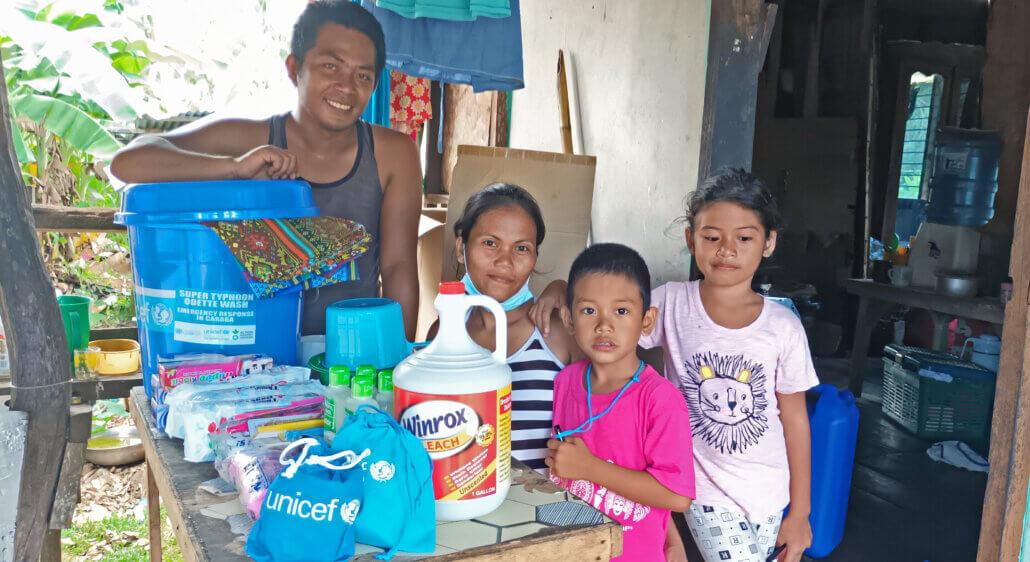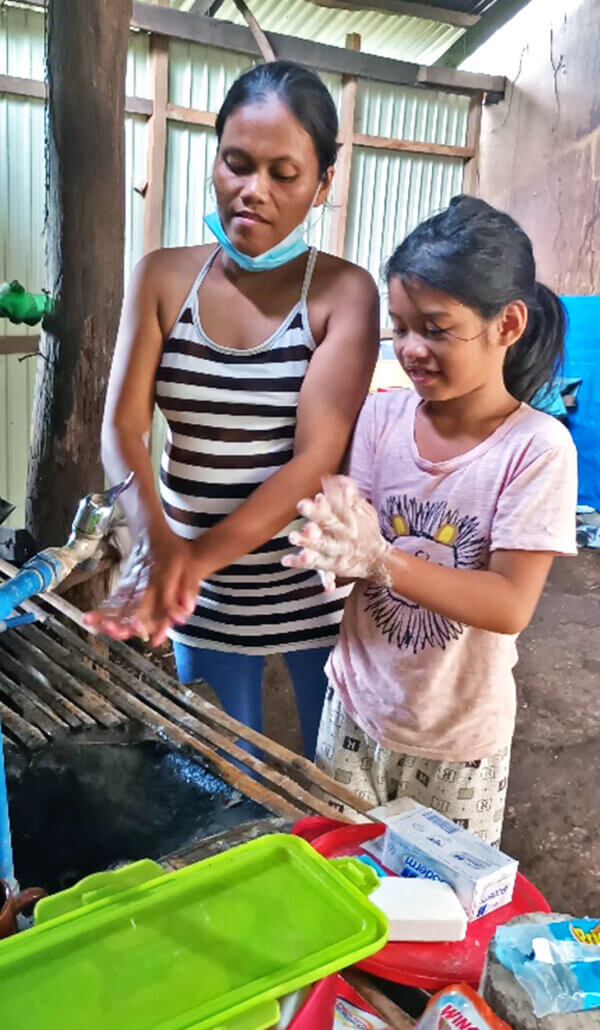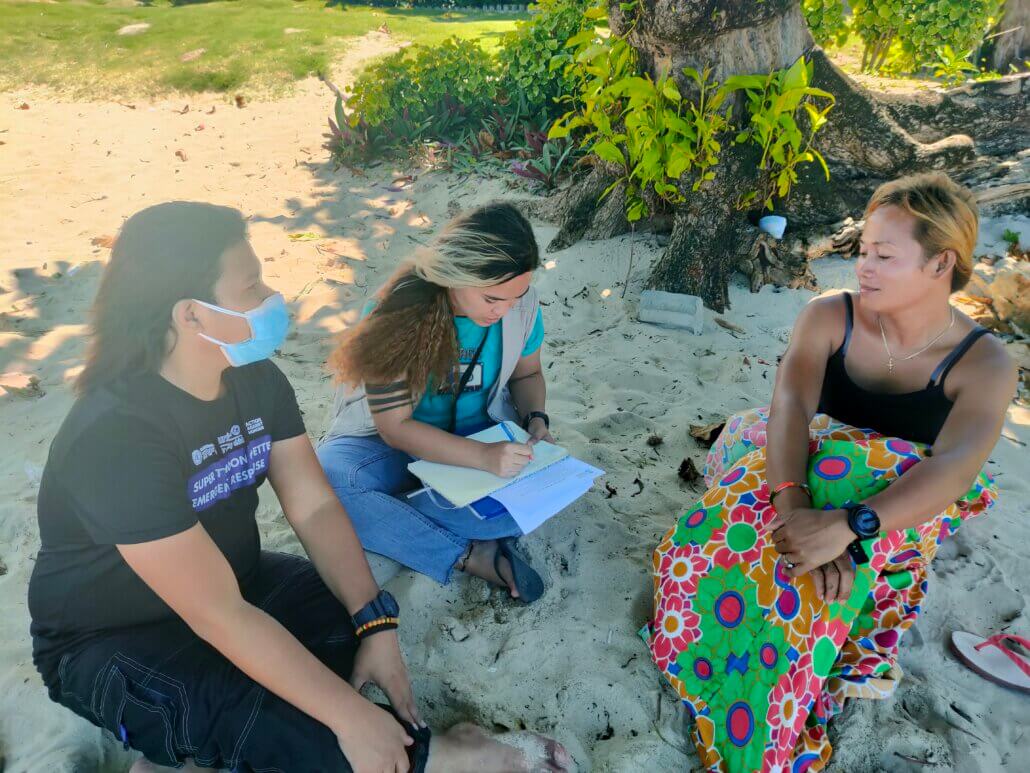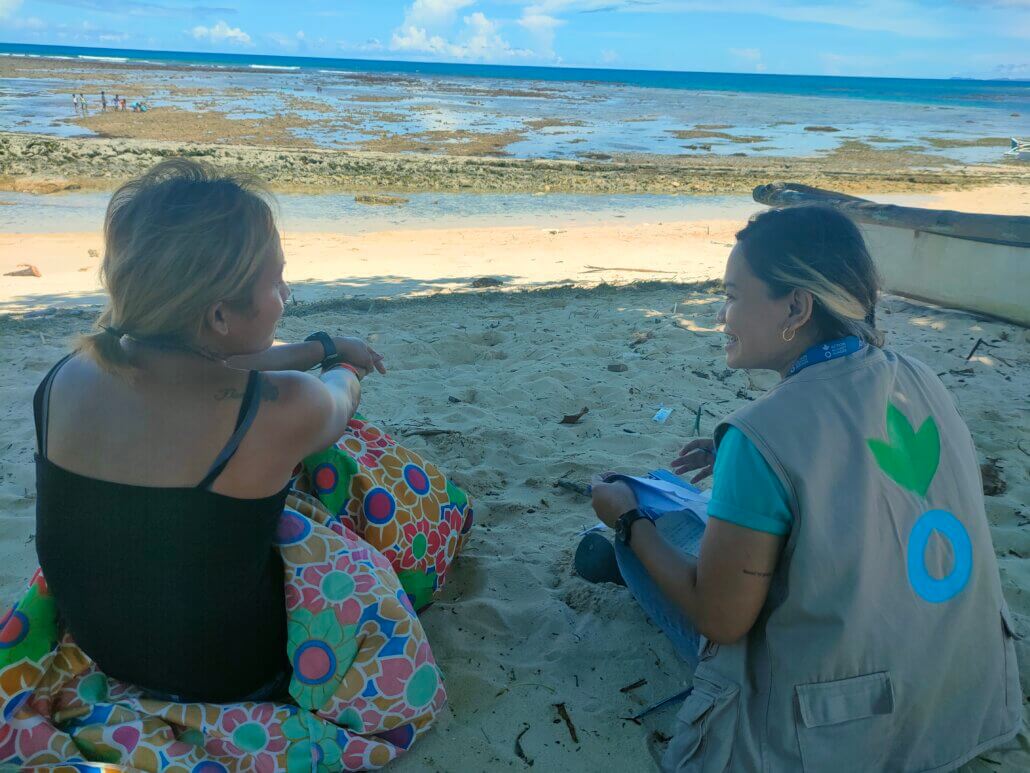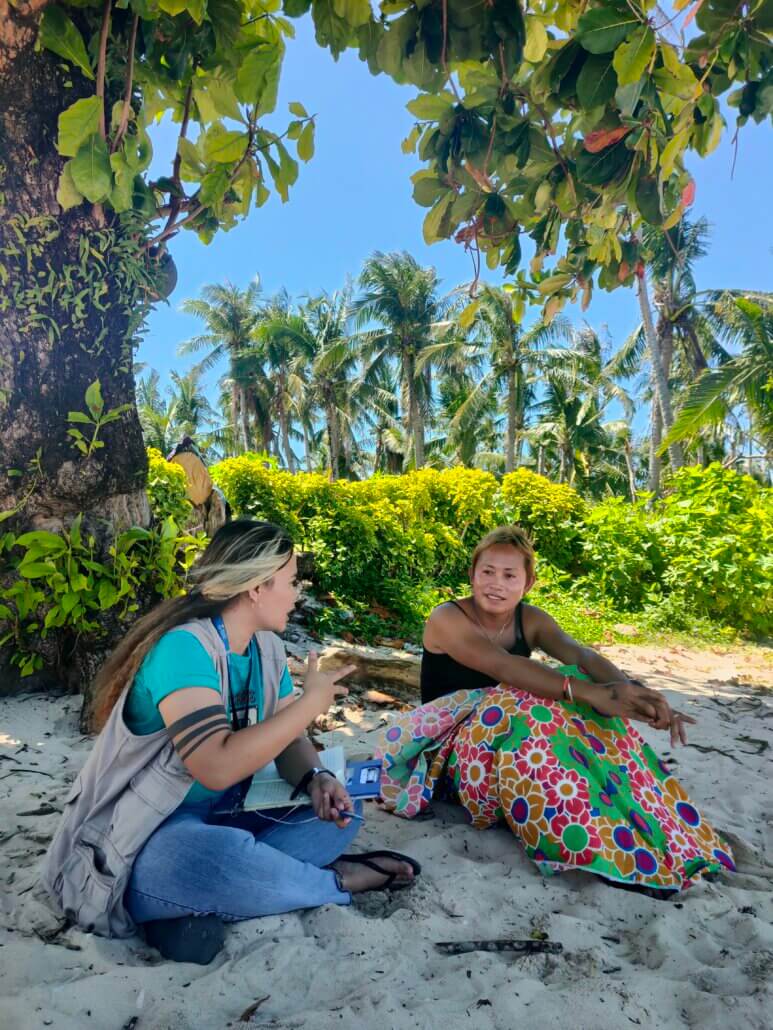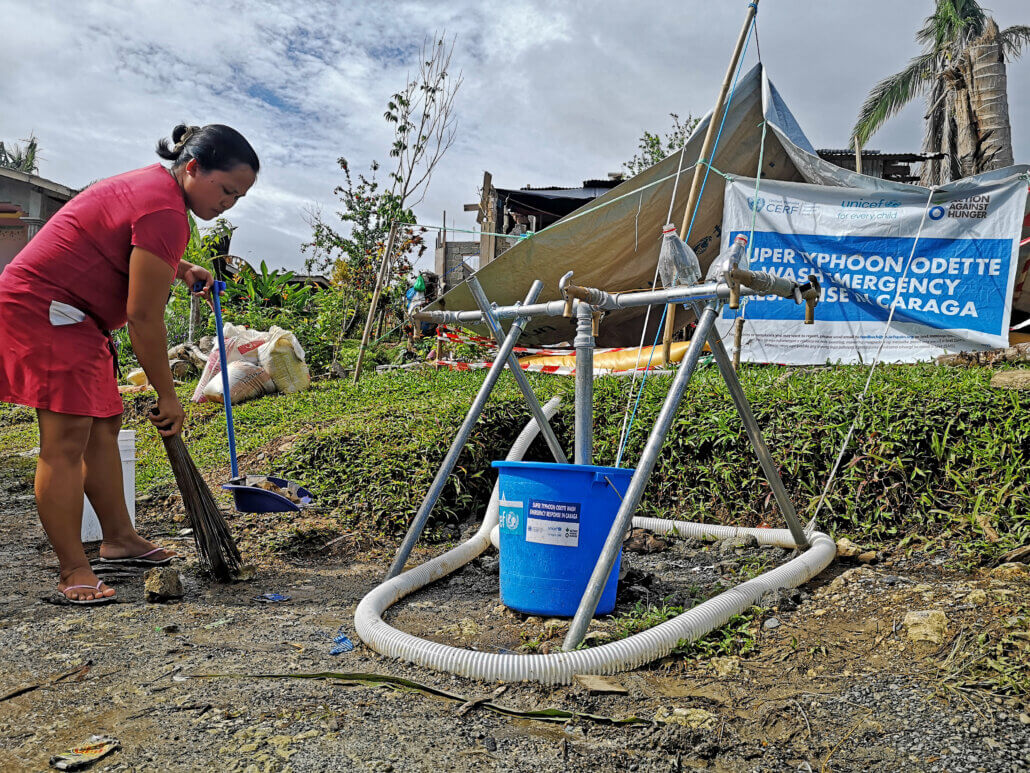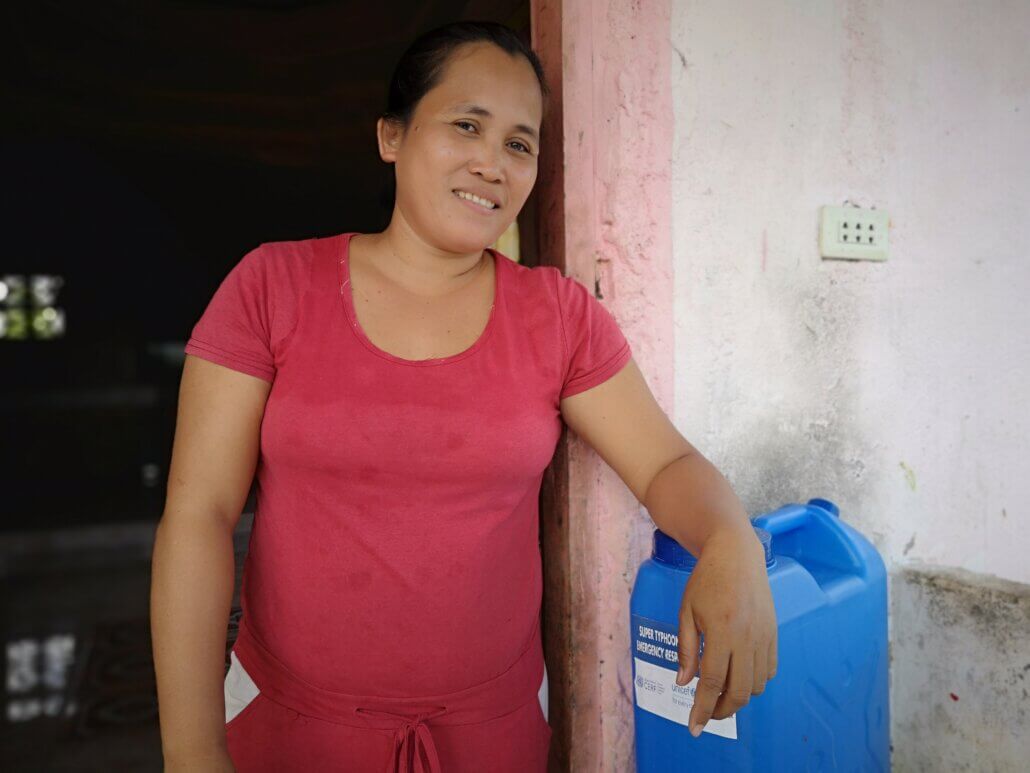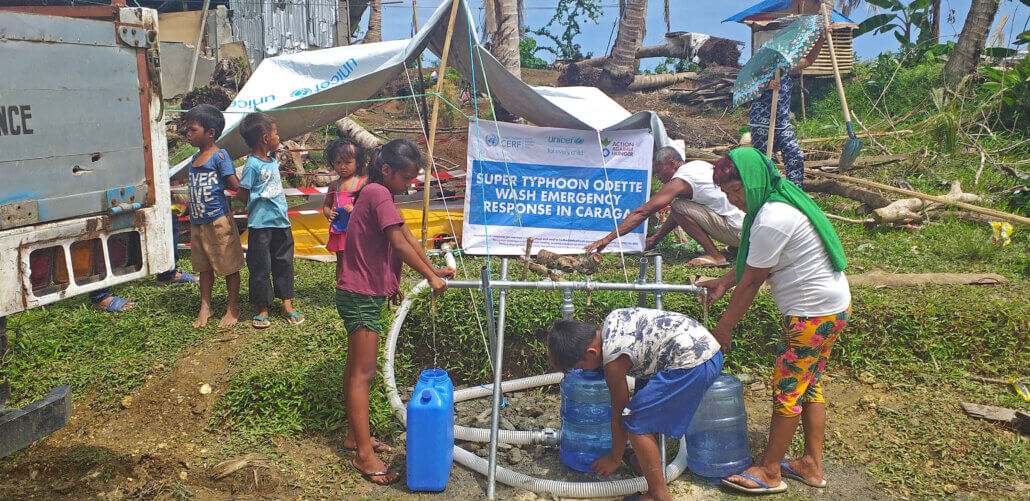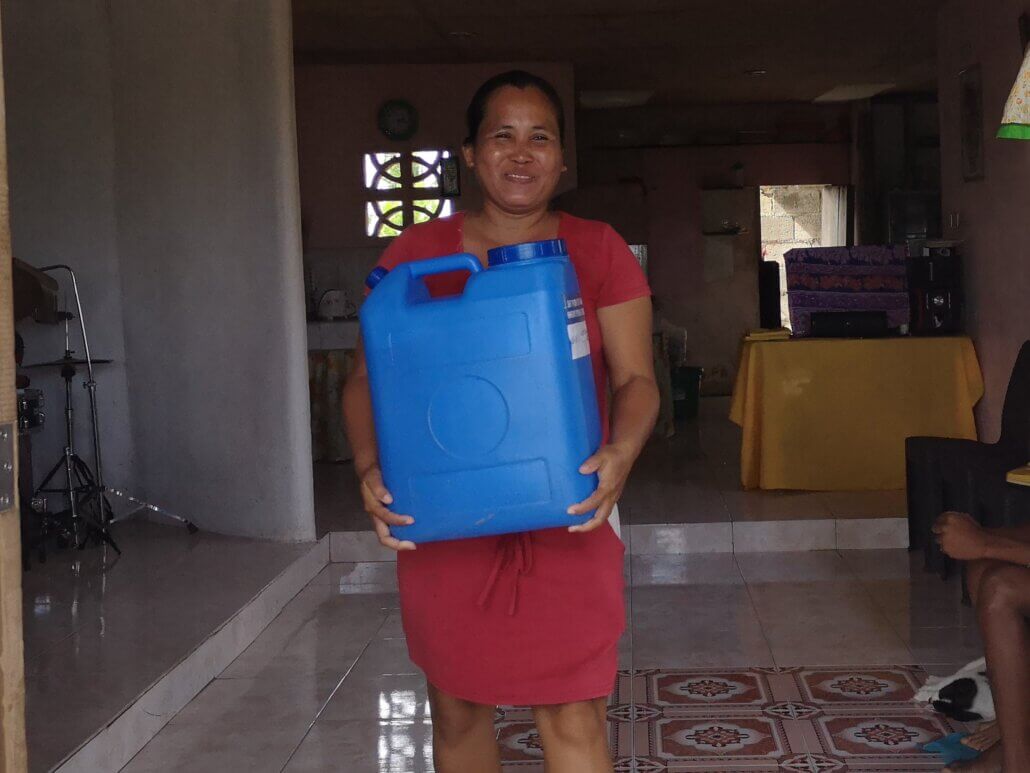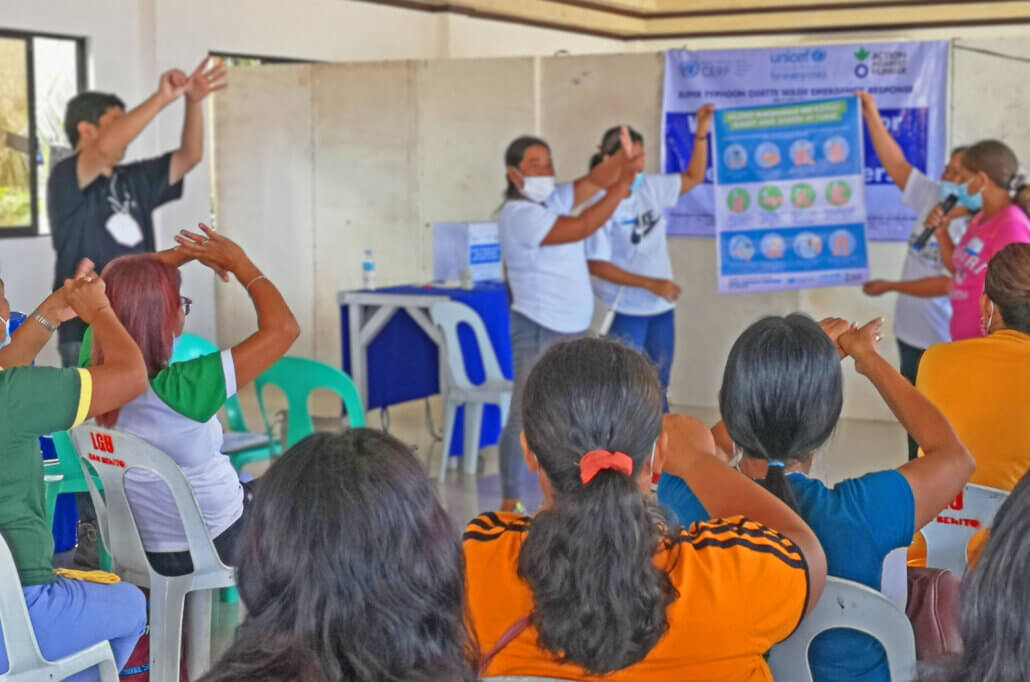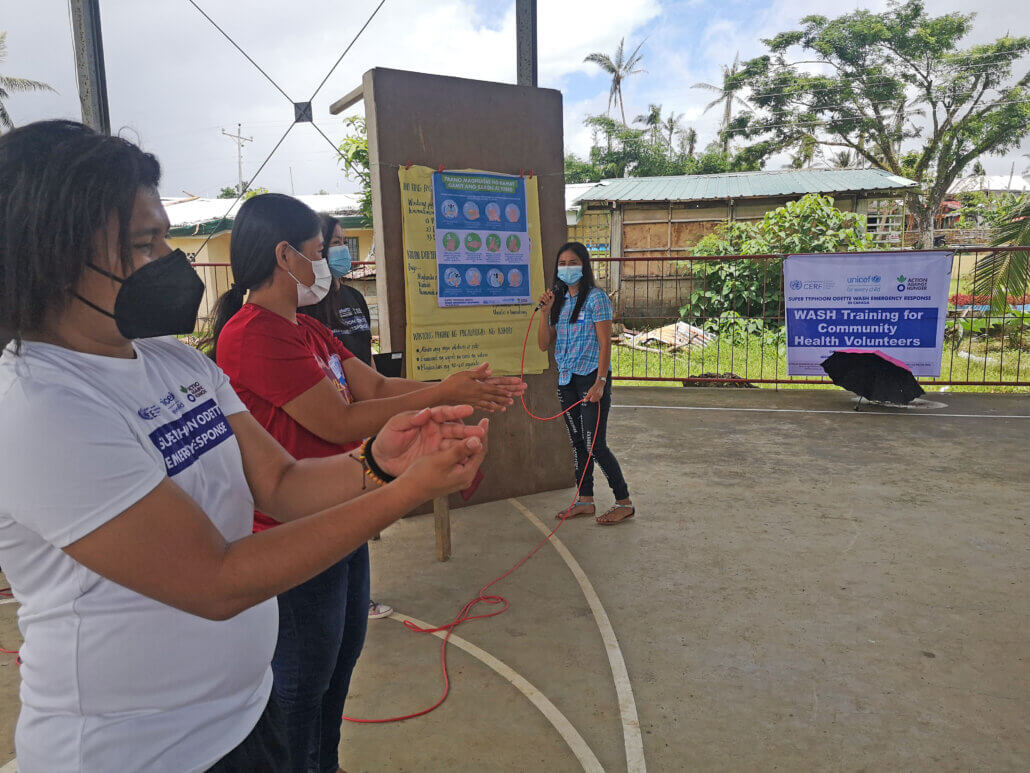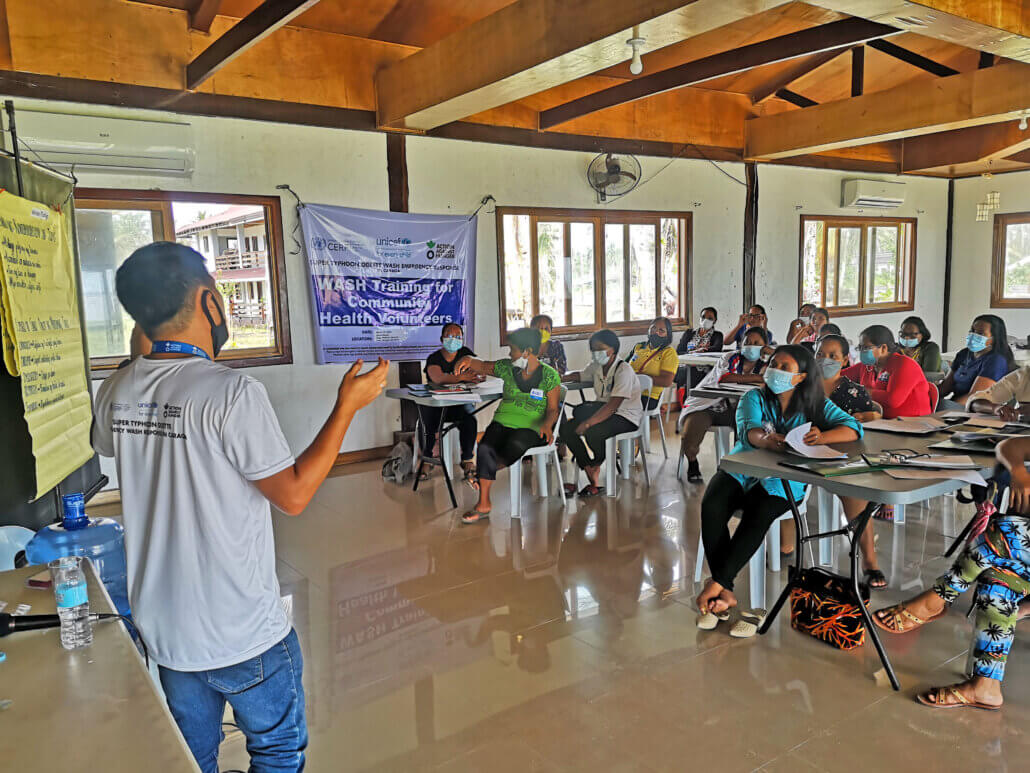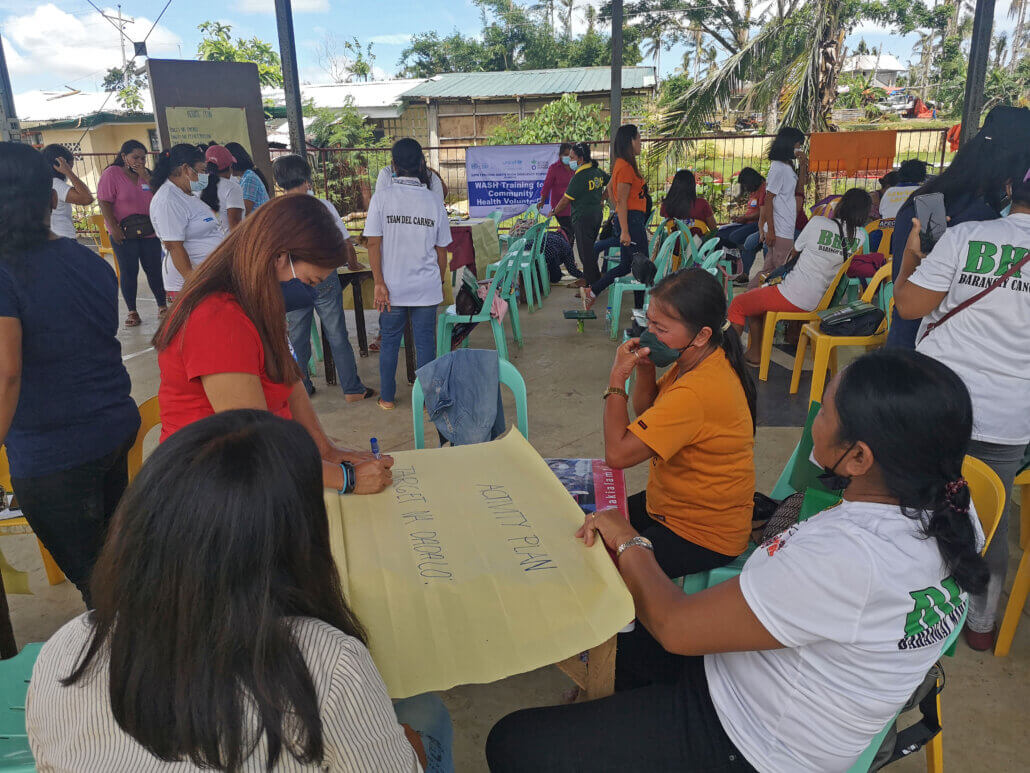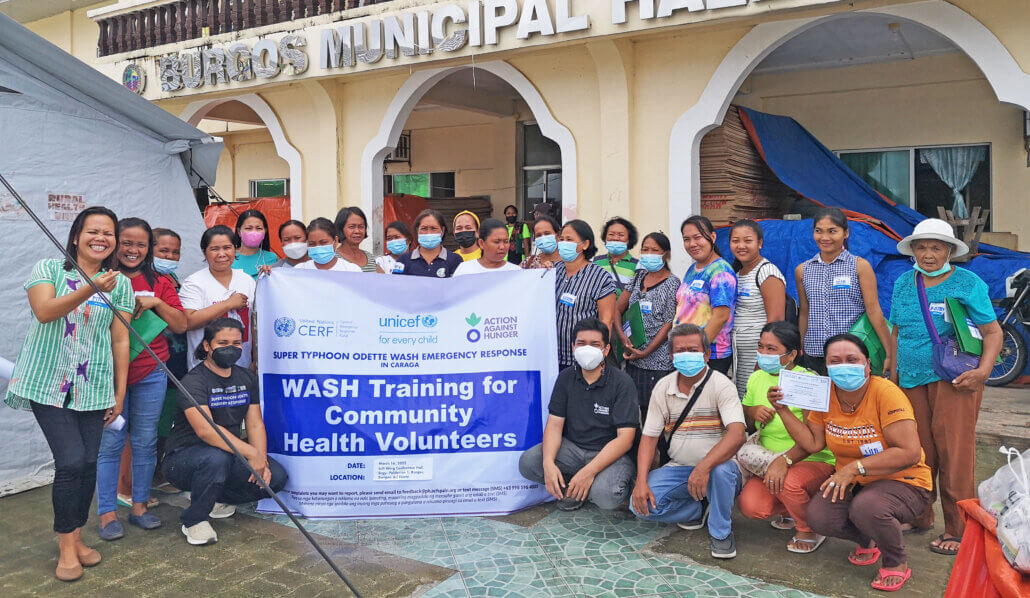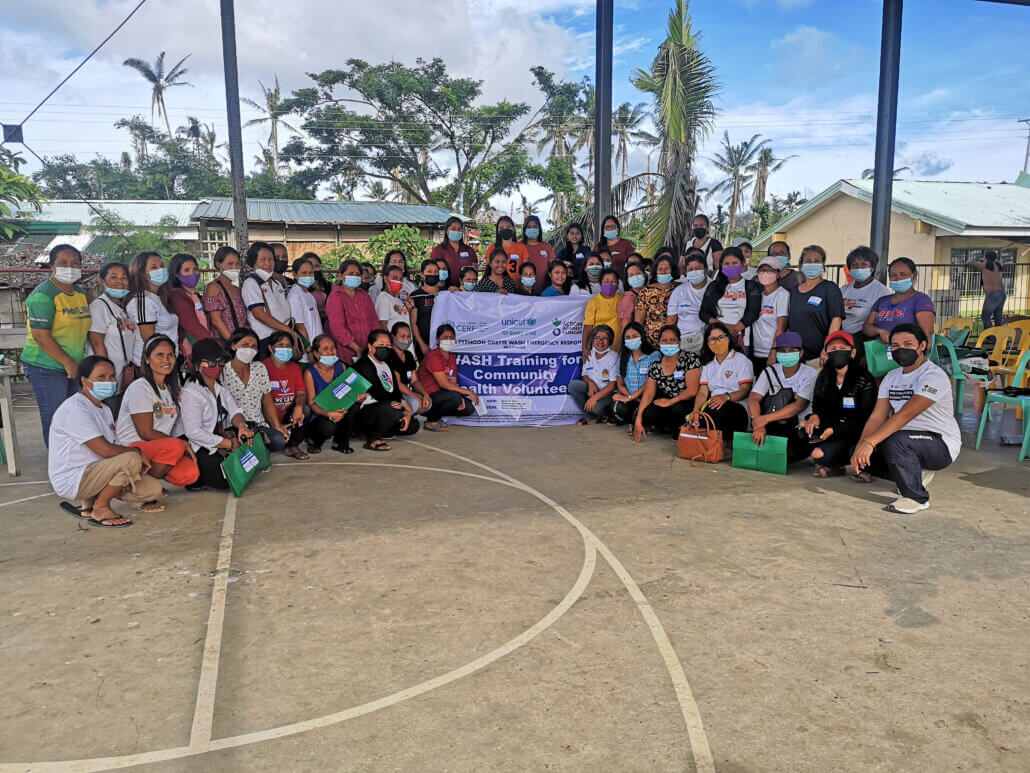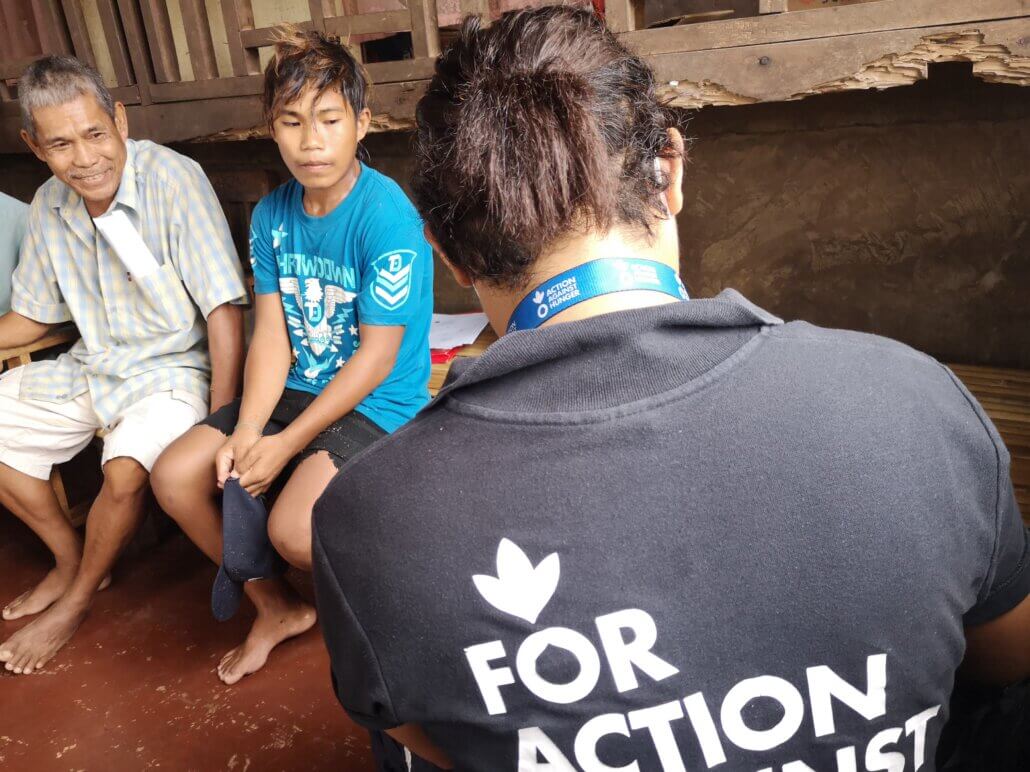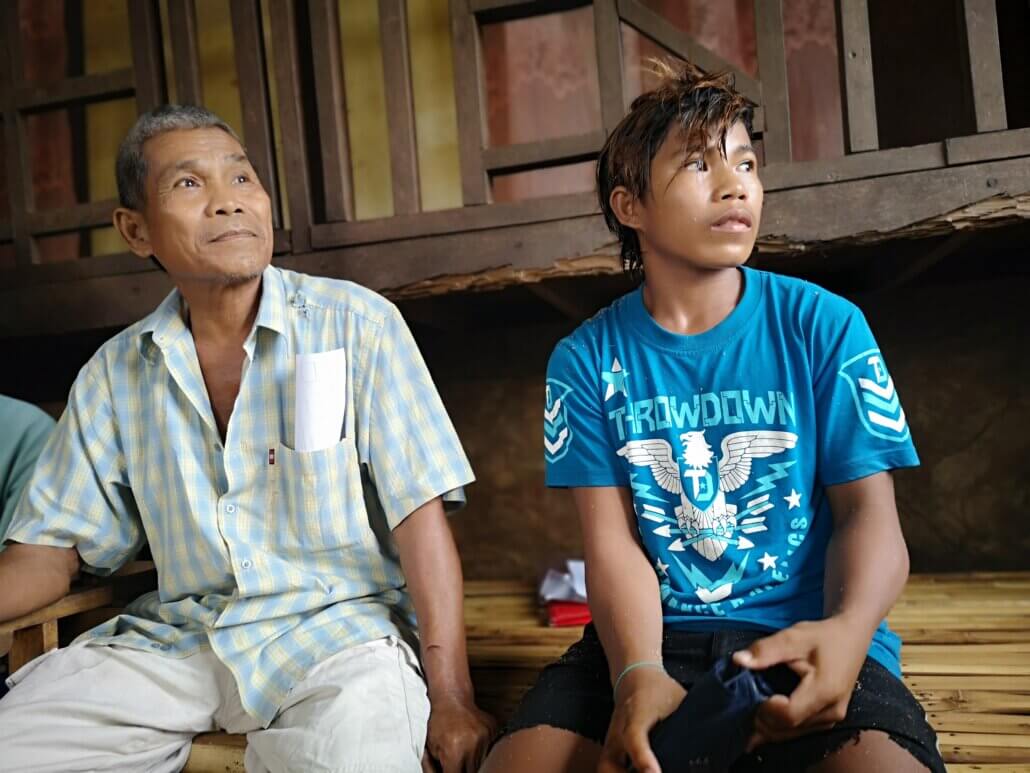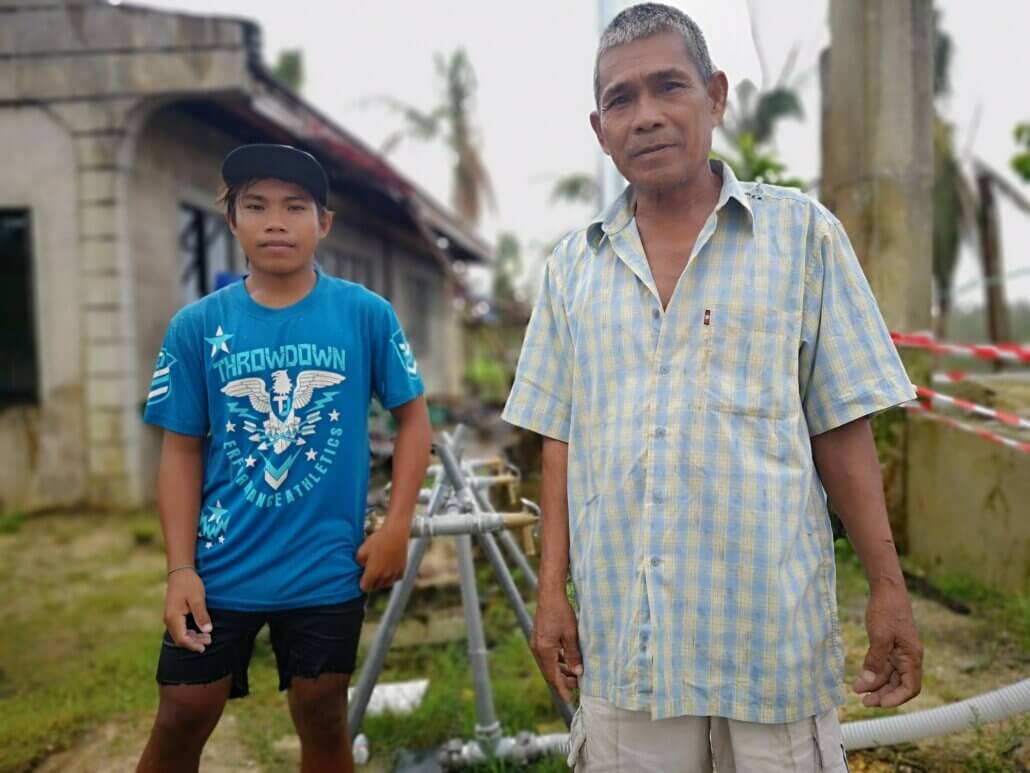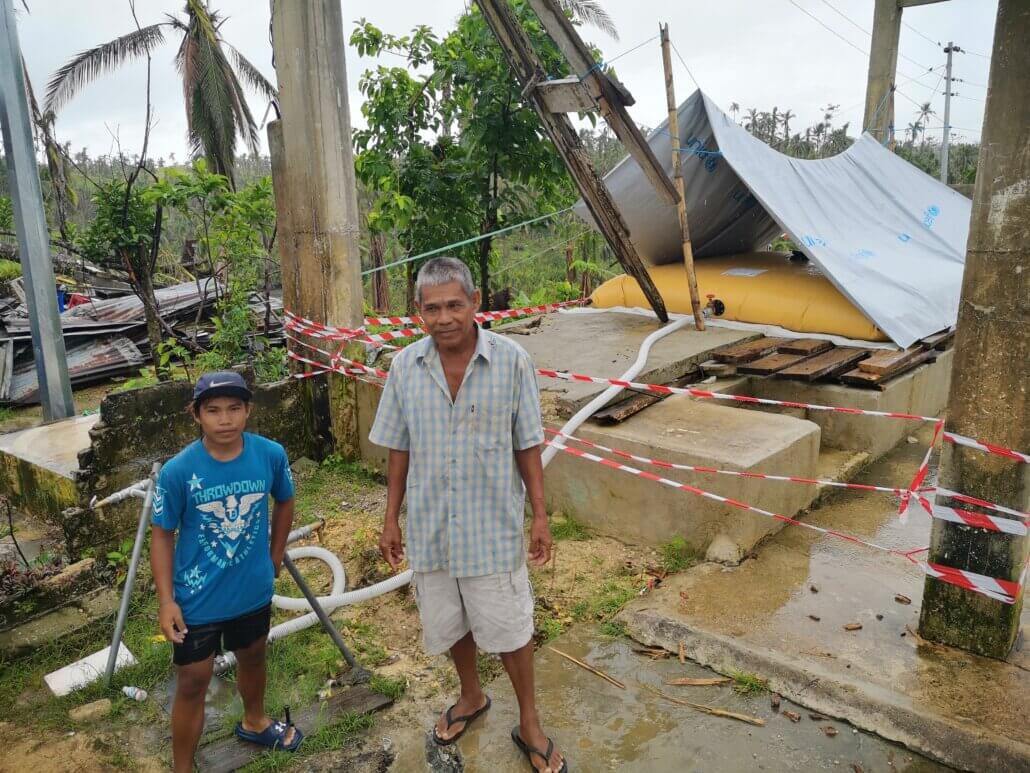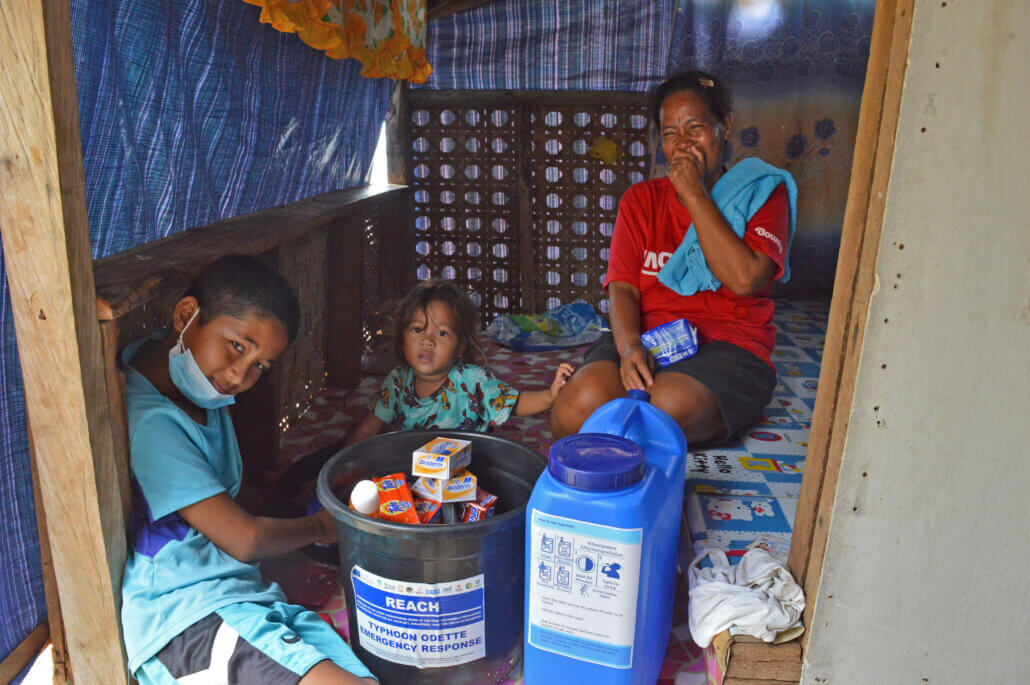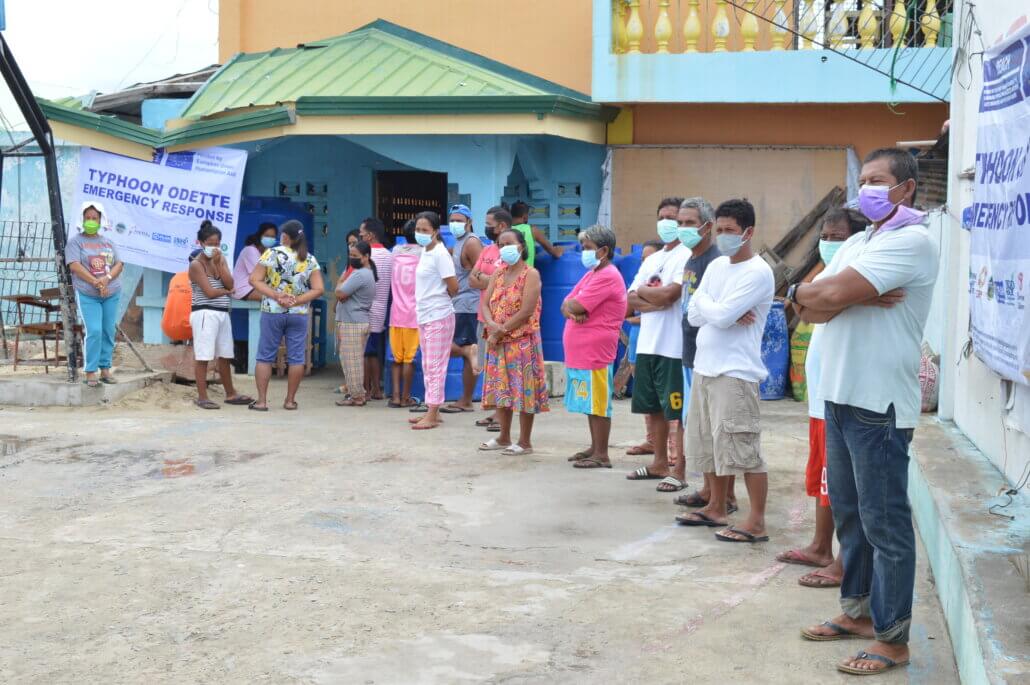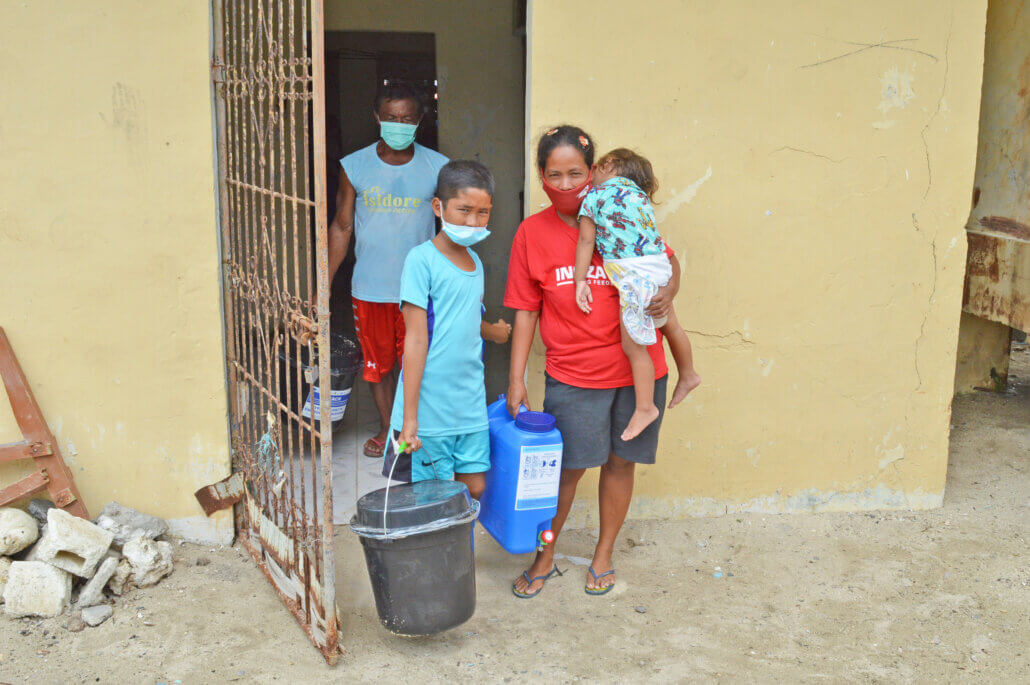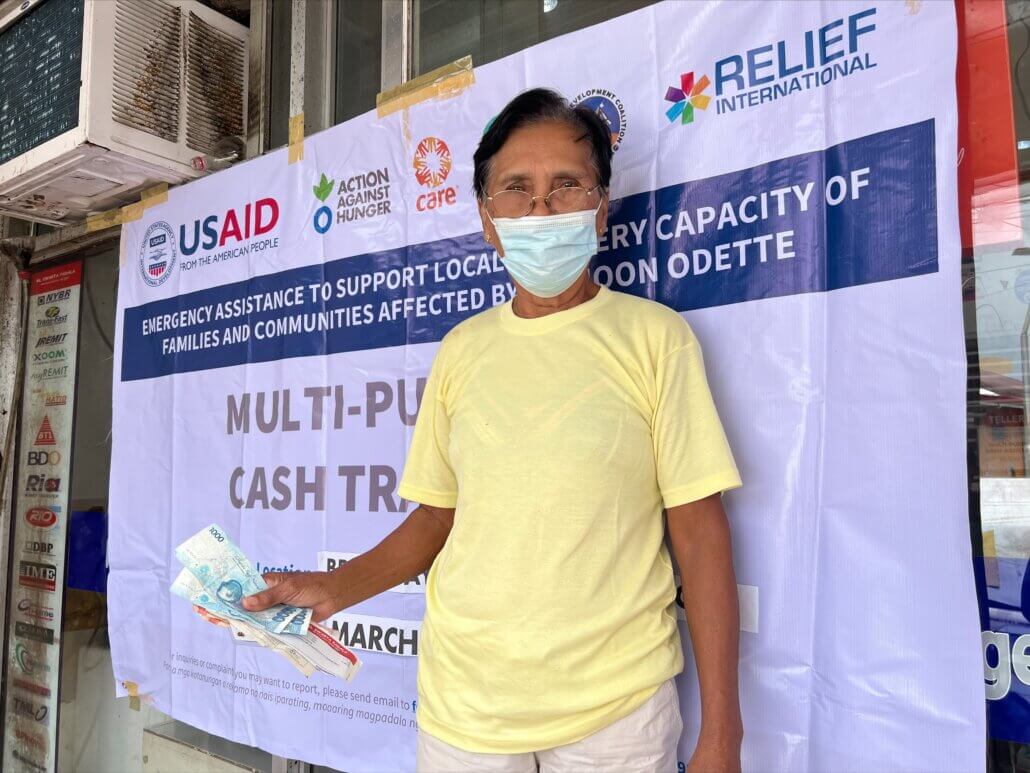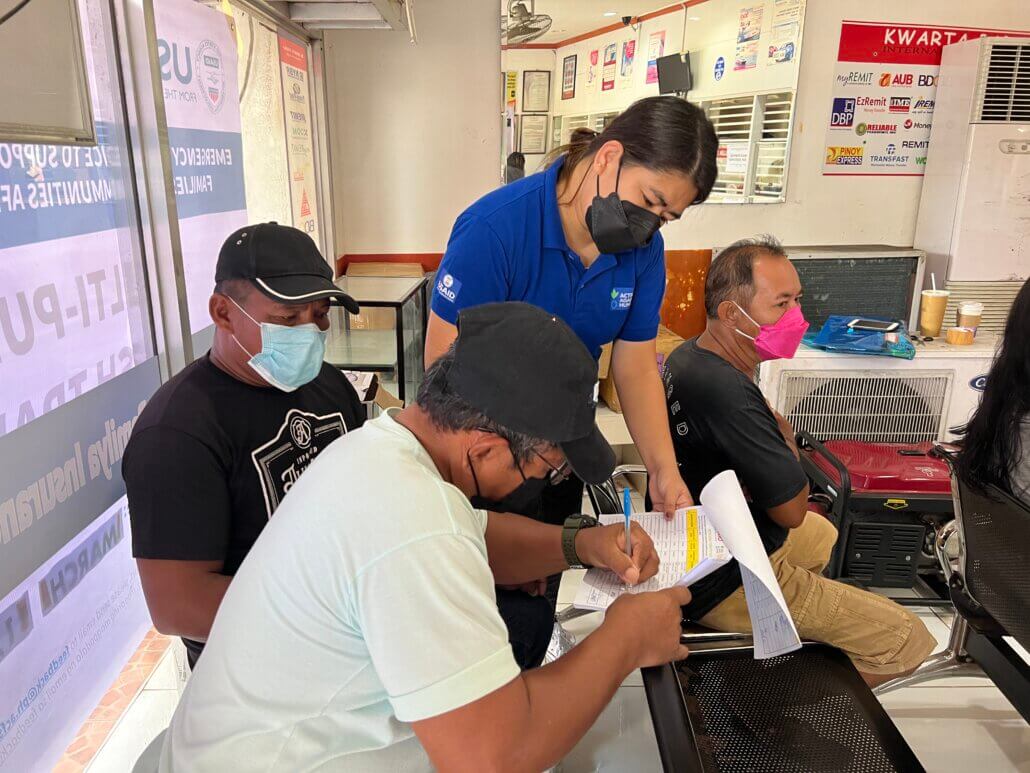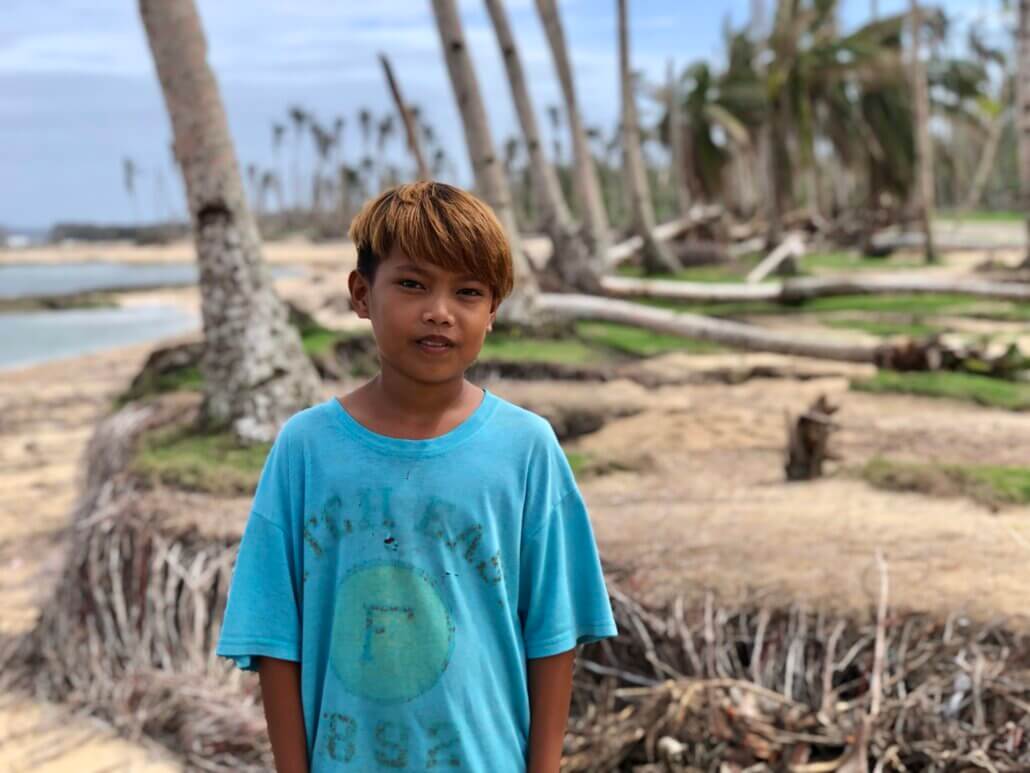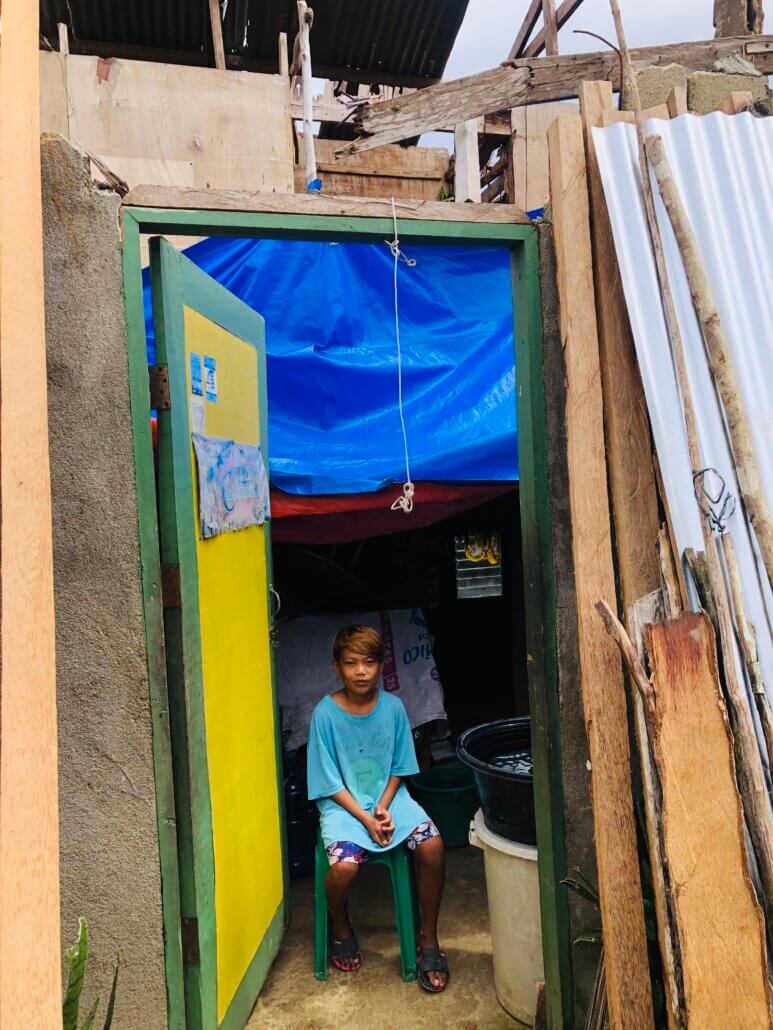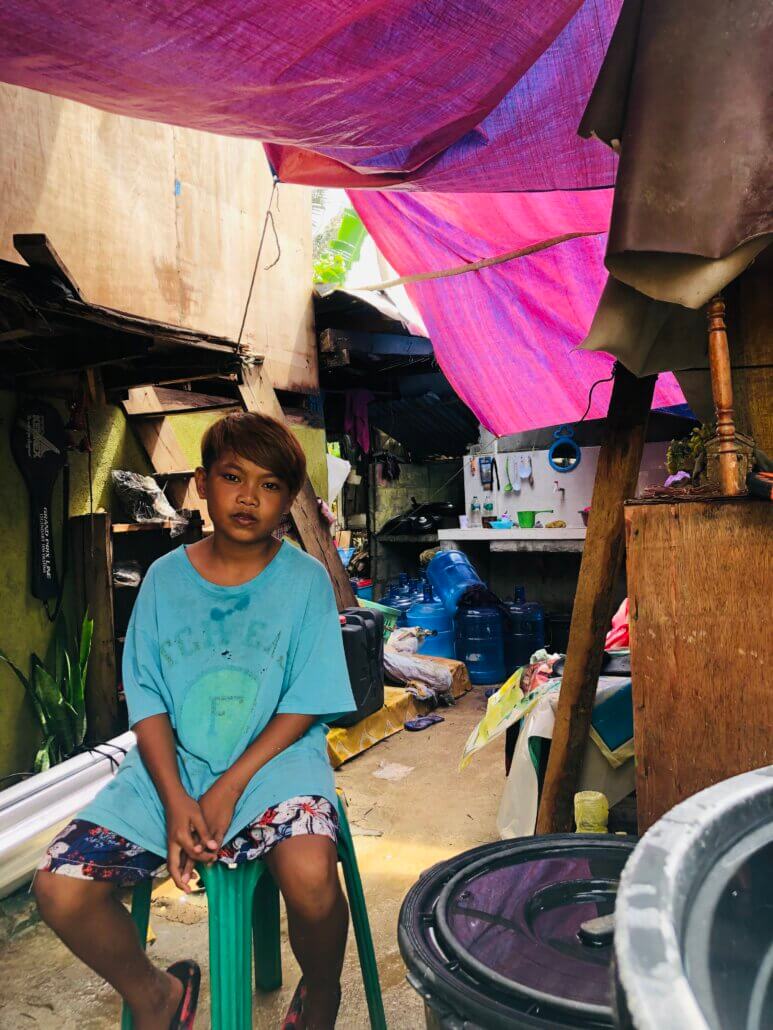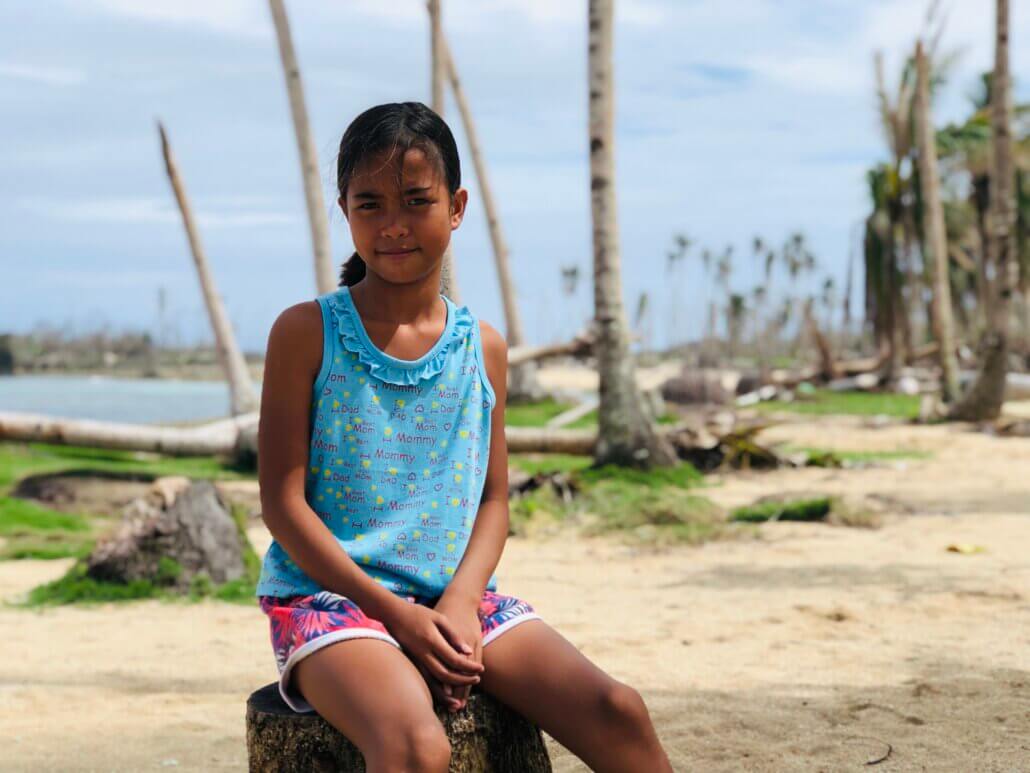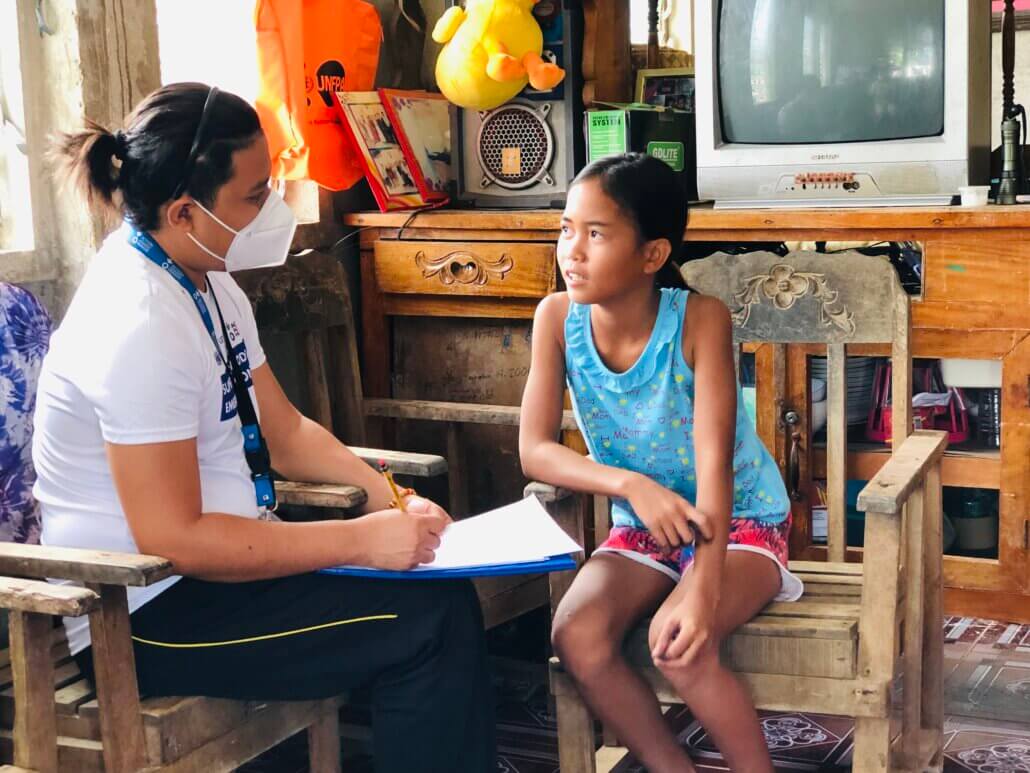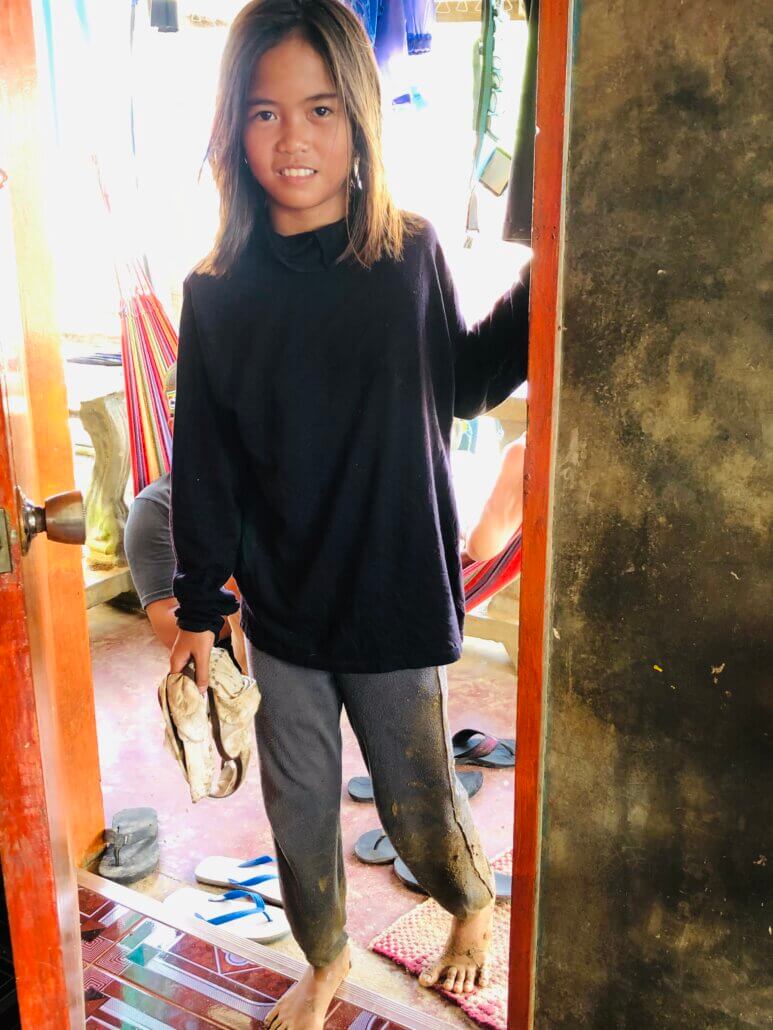Supporting livelihoods, caring for families and communities
A family’s livelihood is a means of securing necessities in life. During disasters and humanitarian emergencies, livelihood is one of the most affected areas, thus affecting families. Almost five months after Typhoon Odette, families in Siargao are still trying to bring theirs back.
Before the storm
The community relies on agricultural produce. Leah’s husband, Julito, asks for coconut shells from copra owners to make charcoal since they do not own a farm. He then sells the charcoal and brings 800 to 1,000-peso income a day. Sometimes, they only have 300 pesos when raw materials are scarce.
After spending on food and other necessities, Leah would use the spare as capital to buy goods for their small sari-sari store.
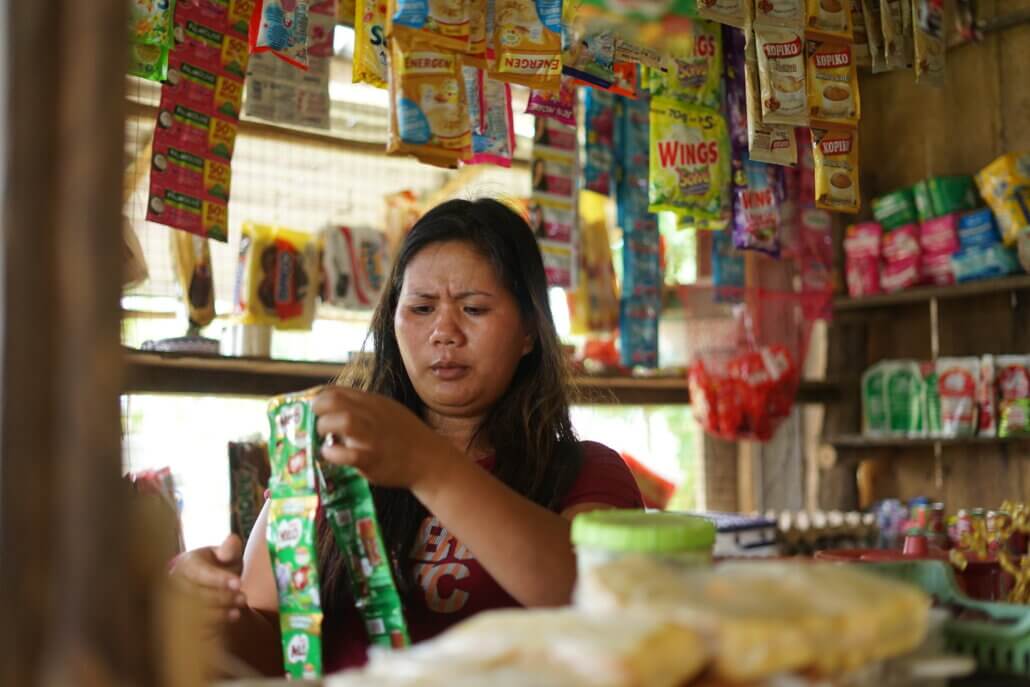
In photo: Leah fills her basket with goods after receiving the cash assistance (Photo by Aliana Gene Sarmiento for Action Against Hunger)
Losing two birds with one disaster
When the area was placed under Typhoon Signal No. 3 last December 14, the family evacuated to a nearby school and left their house and store for hours in fear for their lives.
Leah and her husband came back three days after to find their store toppled and the goods buried in the mud. Leah said her heart sank at the sight of it. She burrowed through the debris to save the undamaged products just so she could still have items to sell.
Her husband however was left jobless after Odette had wiped away hectares of the coconut farms.
“Akong taglig-on ang akong kaugalingon.”
“I try to remain strong,” says Leah Compra-Navales, after their family survived Typhoon Odette. Makabangon-bangon na man ginagmay. “We are coping up, slowly,” she added even though they have lost their livelihood to the typhoon.
Restoring the local economy as a community
Leah’s family is among the 52 households from Barangay Libertad in the municipality of Sta. Monica that received cash assistance for livelihood restoration. Action Against Hunger’s Typhoon Odette Emergency Response in Caraga gave 10,150 pesos for each affected household in Siargao alone. This is done through the funding of the United States Agency for International Development’s Bureau for Humanitarian Assistance (USAID-BHA) and support from our consortium partners. The assistance under the Emergency Recovery Market System (ERMS) component aims to assist households to re-establish their livelihoods and restore the local economy.
Along with others affected within the community of Libertad, they also received non-food items, hygiene kits, and cash assistance of 5,150 pesos per household for food supplies from Action Against Hunger previous USAID-funded activities.
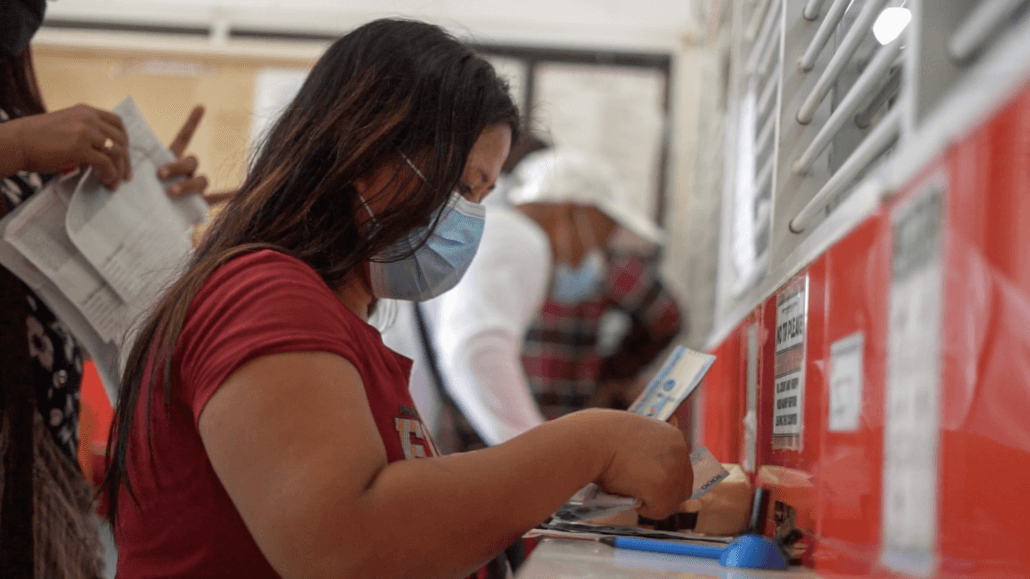
In photo: Leah receives the cash assistance during the ERMS payout. (Photo by Aliana Gene Sarmiento for Action Against Hunger)
A step closer to livelihood recovery
After receiving ERMS cash assistance, Leah immediately used the money to purchase goods from a local general merchandise store. She filled her baskets with canned goods, sugar, condiments, laundry soap, and more products they could sell. She then filled the display racks in their store with more goods.
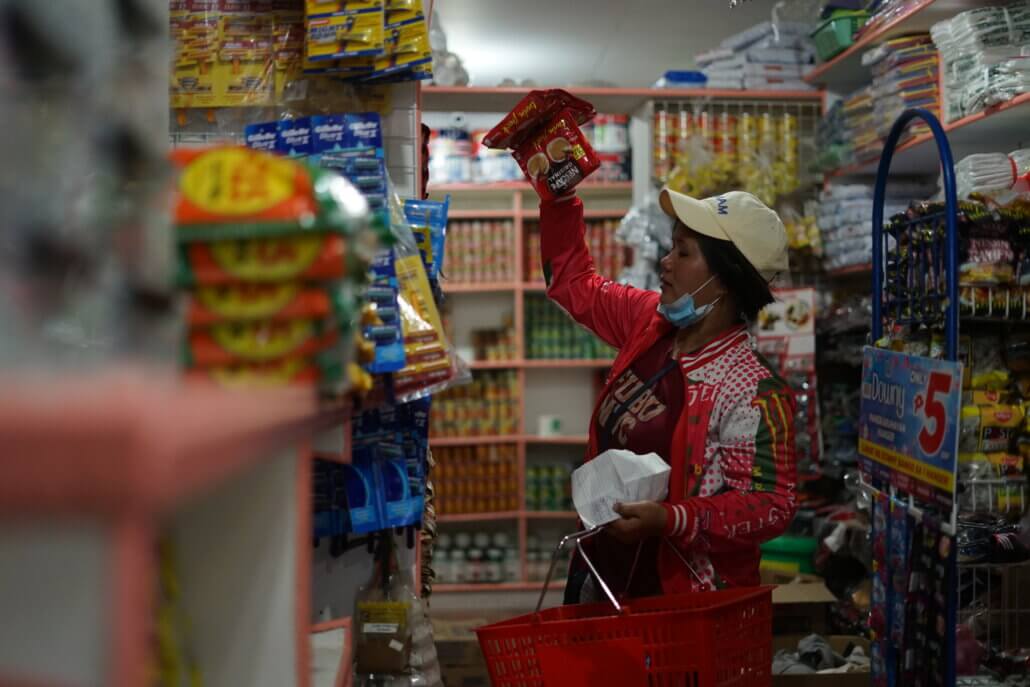
In photo: Leah fills her basket with goods after receiving the cash assistance (Photo by Aliana Gene Sarmiento for Action Against Hunger)
Leah said that with the capital they can earn a small steady income every day, and they will not worry about food in the meantime. She is thankful for the opportunity to restart their small business through the help of Action Against Hunger and other organizations.
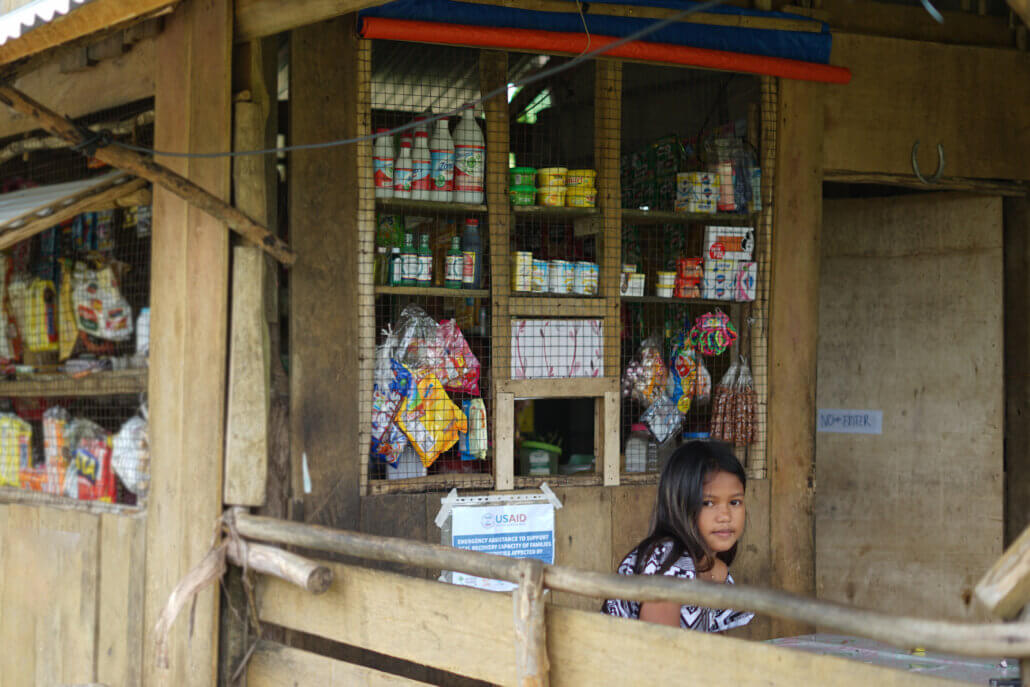
In photo: Leah’s daughter sits in front of their freshly-stocked store. (Photo by Aliana Gene Sarmiento for Action Against Hunger)
The “Emergency Assistance to Support Local Recovery Capacity of Families and Communities Affected by Typhoon Odette in Caraga,” an emergency response project funded by the USAID’s Bureau for Humanitarian Assistance (BHA) which is jointly implemented by Action Against Hunger Philippines, CARE Philippines, ACCORD Incorporated, Agri-Aqua Development Coalition – Mindanao, and Relief International.
Written by Aliana Gene Sarmiento


